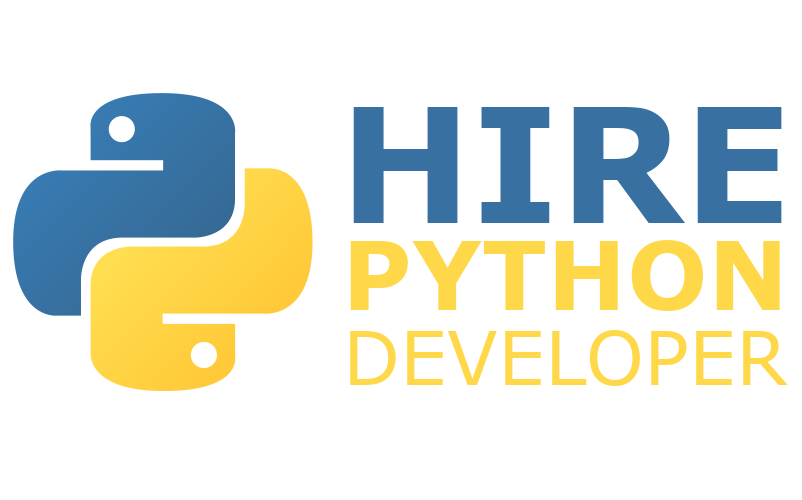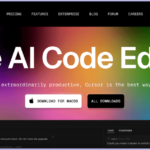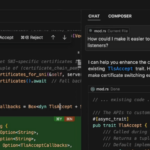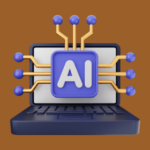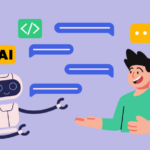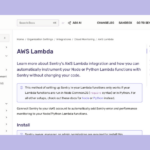Python Vs PHP for Web Development: PHP, being server-side scripting-focused, powers many web giants. Python, however, excels in versatility, extending beyond just web applications.
Web development is an ever-evolving field, and choosing the right programming language for your project can make or break its success. In 2023, two of the most popular languages for web development are Python and PHP. Both languages have their strengths and weaknesses, and understanding them is crucial to making an informed decision on which language to use.
Key Takeaways:
- Python and PHP are two popular programming languages for web development in 2023.
- Choosing the right language for your project is crucial for its success.
- Understanding the strengths and weaknesses of Python and PHP is essential for informed decision making.
Understanding Python and PHP
Python and PHP are two of the most widely used programming languages for web development. Both languages have been around for a while and have evolved significantly over time. Python was first introduced in 1991, while PHP was initially released in 1995. However, they have unique features and characteristics that distinguish them from each other.
Python
It is an interpreted high-level programming language known for its simplicity, readability, and ease of use. One of the most significant advantages of Python is that it is versatile and can be used for a variety of purposes, such as scripting, automation, data analysis, and web development. Python is widely used in the development of scalable web applications, machine learning algorithms, and scientific applications. One of the most popular web frameworks in Python is Django. It is an open-source framework that is used for quick and efficient web application development.
PHP
PHP is an open-source server-side scripting language that is widely used for web development. It is known for its simplicity, flexibility, and speed. PHP is used to develop most of the popular content management systems (CMS), such as WordPress, Drupal, and Joomla. One of the most significant advantages of PHP is its simplicity and the ability to integrate it with HTML seamlessly. PHP is used to develop scalable web applications, e-commerce websites, and social networking sites. One of the most popular web frameworks for PHP is Laravel. It is an open-source framework that is used for developing modern and robust web applications.
Syntax and Simplicity
One of the major differences between Python and PHP is their syntax and simplicity for web development. Python has a much simpler syntax compared to PHP, making it more readable and easier to learn. Its syntax is clean and straightforward, with minimal use of brackets and semicolons.
On the other hand, PHP syntax can be more challenging, with the use of curly braces and semicolons, which can lead to a more cluttered appearance. However, this also means that PHP offers more flexibility in coding and allows for a wider range of web development possibilities.
In terms of simplicity, Python also has an advantage over PHP as it has a more streamlined approach to web development. This makes it easier to write and read code, and also makes debugging and maintaining code simpler.
Python Syntax Example
def fibonacci(n):
if n <= 1:
return n
else:
return (fibonacci(n-1) + fibonacci(n-2))
PHP Syntax Example
function fibonacci($n) {
if ($n <= 1) {
return $n;
} else {
return (fibonacci($n-1) + fibonacci($n-2));
}
}
“Python is often praised for its simplicity, which makes it an ideal language for beginners. It’s easier to learn, write, and maintain.”
Syntax and Simplicity
Python and PHP have different syntaxes, which can affect the ease of use of these programming languages. Python has a simpler and more consistent syntax, making it easier to read and write code. The use of whitespace to define code blocks in Python leads to more readable code compared to PHP’s use of curly braces. Python’s syntax also allows for easier debugging and less time spent on writing and maintaining code.
On the other hand, PHP has a syntax that is similar to other programming languages such as C, making it easier for developers who are already familiar with these languages to learn PHP quickly. However, PHP’s syntax can be more complex and difficult to read, especially for beginners. In addition, PHP allows for more flexibility in its syntax, sometimes leading to less readable code.
Overall, Python’s simpler and more consistent syntax makes it a better choice for web development, especially for beginners. However, experienced developers who are already familiar with other programming languages may find PHP’s syntax more familiar and easier to use.
Scalability and Extensibility
When it comes to scalability and extensibility, Python and PHP have their own strengths and weaknesses. Python’s dynamic nature makes it easy to scale and extend, making it a preferred choice for large-scale projects. Python’s robust libraries and frameworks such as Flask and Django make it easy for developers to build and deploy complex applications quickly.
On the other hand, PHP’s modular architecture and its ability to integrate with third-party applications make it a popular choice for developers looking to build scalable and extensible web applications. PHP’s many frameworks, such as Laravel and CodeIgniter, provide developers with the necessary tools to build complex applications efficiently.
Frameworks and Libraries
Python and PHP both offer a wide range of frameworks and libraries for web development. While PHP has been around for longer and has more well-established frameworks, Python has gained popularity in recent years due to its ease of use and versatility.
| Python Frameworks and Libraries | PHP Frameworks and Libraries |
|---|---|
| Django | Laravel |
| Flask | Symfony |
| Pyramid | CodeIgniter |
Python’s frameworks are generally considered more streamlined and easier to learn than PHP’s. Flask, for example, is a popular lightweight framework that allows for quick and easy development of web applications. On the other hand, Laravel is a robust PHP framework that offers a wide range of features and tools for building complex web applications.
Both languages also have thriving open-source communities that contribute to the development and maintenance of various frameworks and libraries.
Community Support and Documentation
When it comes to community support and documentation, both Python and PHP have dedicated communities that provide ample resources for developers. However, Python’s community is more active and supportive than PHP’s community.
Python has a robust documentation system that is consistently updated with new content and examples. Additionally, the Python Package Index (PyPI) has a vast library of third-party packages with full documentation and community support.
PHP’s documentation is also comprehensive and regularly updated, but it is not as organized and user-friendly compared to Python’s documentation. PHP’s community support heavily relies on third-party forums such as Stack Overflow and Reddit, which can sometimes lead to conflicting and inaccurate information.
Overall, Python offers more extensive and reliable documentation and a more active community, making it more beginner-friendly and easier to troubleshoot problems. However, both programming languages have ample resources available for developers to utilize.
Job Market and Industry Trends
When it comes to job market demand and industry trends in web development, both Python and PHP have their place in the market. However, it is important to note that Python is rapidly gaining popularity in the industry and is expected to continue to grow in demand in the coming years.
A report from the State of the Developer Nation Q1 2021 survey by SlashData, revealed that Python is now the second most popular programming language, just behind JavaScript. The report also stated that Python was the fastest-growing language in 2020, with an estimated 2.3 million developers using the language.
Python’s growth in popularity can be attributed to its versatile use in fields beyond web development, including Artificial Intelligence, Data Science, and Machine Learning. As industries continue to adopt these technologies, demand for Python developers is likely to increase.
On the other hand, PHP still holds its place in the job market, particularly in areas such as Content Management Systems and eCommerce platforms. CMSs such as WordPress, Drupal, and Joomla rely heavily on PHP. Magento, one of the most popular eCommerce platforms, is also built with PHP.
However, it is important to note that PHP’s popularity in the job market has been decreasing in recent years, and its growth is not expected to match that of Python.
Therefore, for those looking to specialize in web development in the coming years, it may be prudent to invest in learning Python, as it has a higher growth potential and wider range of applications in the industry.
Security and Maintenance
When it comes to web development, security and maintenance are crucial aspects that cannot be ignored. Both Python and PHP have their strengths and weaknesses in ensuring the security and maintenance of web applications.
Security: Python has a reputation for being a secure language due to its strong encryption libraries, such as cryptography and hash libraries. Additionally, Python’s strict syntax rules make it less prone to security vulnerabilities. PHP, on the other hand, has been criticized for its lack of security in the past, mainly due to its weak encryption libraries. However, with the introduction of modern frameworks like Laravel and Phalcon, PHP has improved its security features, making it a more secure option.
Maintenance: Both Python and PHP offer easy-to-maintain codebases due to their simplicity and readability. Python’s codebase is simpler and more organized due to its indentation rules, making it easier to read and understand. PHP’s codebase is also simple, but its flexibility sometimes leads to poorly structured code. However, with the use of modern PHP frameworks, the codebase can be structured and maintained with ease.
Overall, Python and PHP both have their strengths and weaknesses when it comes to security and maintenance. It is crucial to consider the specific requirements of a project and to choose a language that best suits those needs.
Conclusion
In 2023, Python and PHP actively compete as popular programming languages for web development. Python actively attracts users with its simplicity, elegant syntax, and versatile nature. PHP, on the other hand, excels by actively delivering speed and performance, especially for server-side programming.
When it comes to scalability and extensibility, both languages provide robust frameworks and libraries. However, Python actively offers a more extensive collection for machine learning and AI.
In terms of community support and documentation, active users power both Python and PHP with vast online resources. This makes it easy to actively find solutions to any web development problems.
Job trends show Python and PHP are in demand for web development. However, Python is actively gaining popularity due to its versatility and emerging technology applications like machine learning.
Both Python and PHP actively maintain high security when kept up to date. However, Python actively enables easier maintenance with its elegant syntax.
Ultimately, the needs of the specific project should actively drive the choice between Python and PHP in 2023. If you need an easy to learn, versatile language with robust machine learning capabilities, Python actively delivers. If you need proven server-side speed and performance with plentiful web frameworks, PHP actively excels.
Lydia is a seasoned technical author, well-versed in the intricacies of software development and a dedicated practitioner of Python. With a career spanning 16 years, Lydia has made significant contributions as a programmer and scrum master at renowned companies such as Thompsons, Deloit, and The GAP, where they have been instrumental in delivering successful projects.
A proud alumnus of Duke University, Lydia pursued a degree in Computer Science, solidifying their academic foundation. At Duke, they gained a comprehensive understanding of computer systems, algorithms, and programming languages, which paved the way for their career in the ever-evolving field of software development.
As a technical author, Lydia remains committed to fostering knowledge sharing and promoting the growth of the computer science community. Their dedication to Python development, coupled with their expertise as a programmer and scrum master, positions them as a trusted source of guidance and insight. Through their publications and engagements, Lydia continues to inspire and empower fellow technologists, leaving an indelible mark on the world of scientific computer science.
